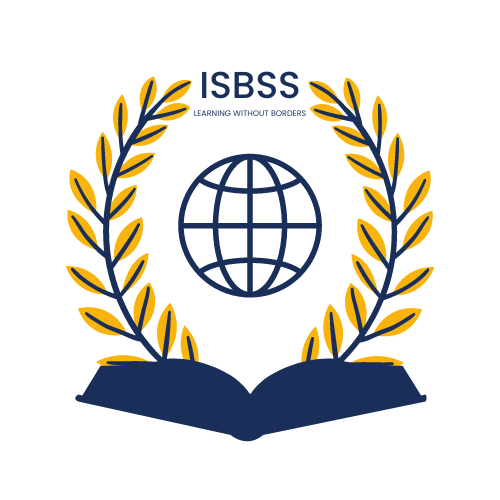
Hidden Cost of Studying Abroad | What Universities Don’t Tell You
Studying abroad is often seen as the ultimate academic and career boost, a chance to gain a world-class education, explore new cultures, and unlock global job opportunities. But behind the glossy brochures and university rankings lies a financial reality that many students are not prepared for. While tuition fees grab the headlines, the real cost of studying abroad goes much deeper, with hidden expenses like rent, travel, visa fees, and daily living costs quickly adding up. These unexpected costs can turn a dream into a financial burden, leaving students and their families struggling to keep up.
Have you considered how much it actually costs to live abroad while studying? What happens when your home currency weakens, making tuition and living expenses skyrocket? Can you afford international health insurance, study materials, and unexpected administrative fees? Most universities don’t disclose these details upfront, leaving students to figure it out the hard way. Many students drop out mid-way, take on overwhelming debt, or sacrifice their well-being just to afford daily expenses.
This page uncovers the full cost of studying abroad, highlighting the financial traps universities don’t tell you about. But more importantly, it offers a better solution, an affordable, high-quality education with ISBSS. With ISBSS’s online degree programs, you get an internationally recognized education without the financial strain of relocating. Say goodbye to visa fees, rent, and unexpected expenses, and say hello to a smarter, cost-effective way to earn your degree.
You will also love to see The Cost of Inaction: What We Lose by Neglecting Global Education
The Real Cost of Studying Abroad: Beyond Tuition Fees
When students plan to study abroad, they often focus only on tuition fees. However, the cost of studying abroad goes far beyond what universities list on their websites. Many hidden expenses, such as housing, travel, food, and books, can add up quickly, making education in another country much more expensive than expected. Unfortunately, universities rarely highlight these extra costs, leaving many students unprepared for the financial burden.
At ISBSS, we understand the financial challenges international students face. That’s why we provide valuable guidance and resources to help students plan their study-abroad journey wisely.
Breaking Down Expenses Beyond Tuition
When planning to study abroad, it’s important to look beyond tuition fees. Here are the major expenses students must consider:
#1. Housing Costs: A Major Financial Burden
Rent is often one of the biggest expenses for international students. The cost varies depending on the country and city.
- In the U.S., student accommodation can cost between $800 and $2,500 per month.
- In the UK, student housing ranges from £600 to £1,200 per month in cities like London.
- While in Canada, students spend around CAD 500 to CAD 1,500 per month on rent.
To manage housing costs, students can:
- Choose affordable student housing.
- Share apartments with other students.
- Consider homestay options for a more budget-friendly experience.
We recommend you also see Cultural and Psychological Challenges of Studying Abroad | Study Abroad Psychology
#2. Visa and Travel Expenses: More Than Just a Plane Ticket
Traveling to another country involves several costs, including:
- Visa application fees, which range from $100 to $500 depending on the country.
- Airfare, which can cost between $800 and $2,000 for a round-trip ticket.
- Local transportation, such as buses, trains, or metro passes, which add up to $50–$150 per month.
These costs must be factored into the cost of studying abroad. Many students forget about visa renewal fees, which can also be expensive.
#3. Books and Study Materials
Many students don’t realize that textbooks and study materials can be expensive. Depending on the course, students may spend:
- $200–$1,000 per year on textbooks.
- Additional costs on software, lab materials, and project supplies.
To save money, students can:
- Rent or buy used books.
- Use university libraries.
- Explore open-source academic resources online.
At ISBSS, we guide students on how to cut down academic costs without compromising their education.
#4. Health Insurance and Medical Costs
Healthcare is another hidden cost of studying abroad. Many universities require international students to have health insurance. This can cost:
- $500–$2,000 per year in countries like the U.S. and Canada.
- Additional out-of-pocket costs for medical treatments and prescriptions.
To reduce these expenses, students should:
- Choose an affordable student health plan.
- Use university health services whenever possible.
- Stay healthy to avoid unnecessary medical bills.
#5. Daily Living Expenses
Beyond tuition, students must also budget for:
- Groceries: $150–$400 per month.
- Phone and internet bills: $30–$100 per month.
- Entertainment and social activities: $100–$300 per month.
Managing daily expenses is crucial to avoid financial stress. A well-planned budget can make a huge difference.
At ISBSS, we provide budgeting tips and financial planning resources to help students manage their expenses wisely.
We recommend you also see The Digital Divide and the Future of Education: Bridging the Gap for a More Equitable World
Why Universities Don’t Highlight These Hidden Costs
#1. Marketing Strategy: Making Study Abroad Seem More Affordable
Universities compete for international students, and one way they attract applicants is by keeping advertised costs as low as possible. Instead of listing total expenses, they focus on tuition fees because:
- It makes studying abroad look more financially accessible.
- It encourages more students to apply.
- Also, it avoids discouraging applicants from low-income countries.
However, once students arrive, they realize tuition is just one part of the total cost, and they must quickly find ways to cover all the additional expenses.
#2. Lack of Transparency: No Standard Cost Estimation
Unlike tuition fees, which are fixed and published, living expenses vary based on:
- The city – Studying in London or New York is far more expensive than smaller towns.
- The lifestyle – Some students live on a strict budget, while others prefer a comfortable lifestyle.
- The housing type – On-campus dorms may be cheaper than renting a private apartment.
Because these costs change from student to student, universities often avoid estimating them. Instead, they assume students will figure it out on their own.
#3. Universities Assume Students Will Research These Costs Themselves
Many universities assume that students and their families will do independent research on living costs. But for students coming from countries where study-abroad costs are not widely discussed, this can be a major challenge.
Example: A student from Nigeria may not realize that the cost of living in Canada includes mandatory health insurance, transportation passes, and high winter clothing expenses, leading to unexpected financial struggles.
Without clear guidance, many students arrive unprepared and struggle to manage the full cost of studying abroad.
We recommend you also see The Role of Online Learning in Expanding Career Opportunities
How ISBSS Helps Students Avoid These Hidden Costs
For many students, the cost of studying abroad is not just about tuition, it includes rent, travel, visa fees, and other hidden expenses that can make international education unaffordable. But with ISBSS, you don’t have to worry about these unexpected costs. Here’s how ISBSS makes quality education accessible without financial strain:
#1. Affordable Online Programs
Traditional universities require students to relocate, leading to high accommodation and living costs. With ISBSS, you can study from your home country and earn an internationally recognized degree without the extra expense of rent, food, and transportation.
#2. Flexible Payment Plans
Many students studying abroad struggle with unexpected fees for course materials, registration, and student services. At ISBSS, we offer transparent tuition fees and flexible payment options so students can budget with confidence, no hidden charges, no surprises.
#3. No Visa or Travel Expenses
One of the biggest financial burdens for international students is the cost of visa applications, flights, and travel arrangements. With ISBSS, students avoid these expenses entirely. You can enroll and complete your degree without worrying about expensive visa processes or airfare.
Study Smart with ISBSS
Instead of facing financial stress abroad, ISBSS allows students to gain a high-quality education from anywhere in the world, without breaking the bank. If you’re looking for an affordable, flexible, and globally recognized alternative to traditional universities, ISBSS is the perfect solution.
Join ISBSS today and take control of your education without hidden costs!
Frequently Asked Questions About the Hidden Costs of Studying Abroad
Most universities focus on tuition fees in their marketing to make studying abroad seem more affordable. Additionally, there is no standard way to calculate living costs, and universities assume students will research these expenses independently.
Students from countries with weaker currencies often struggle with fluctuating exchange rates. A sudden drop in currency value can increase tuition and living costs overnight, making it difficult for students to continue their education abroad.
While some scholarships exist, they are highly competitive and often reserved for domestic students. Many international students cannot access loans without a local co-signer, making financing education abroad even harder.
Besides tuition, international students often face high living expenses, visa and travel costs, health insurance fees, and study materials. Rent in major university cities can be as expensive as tuition itself, and daily expenses quickly add up.



